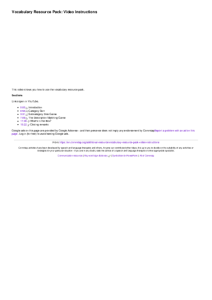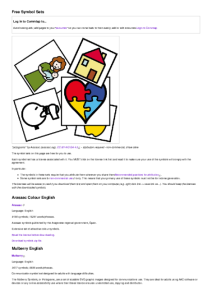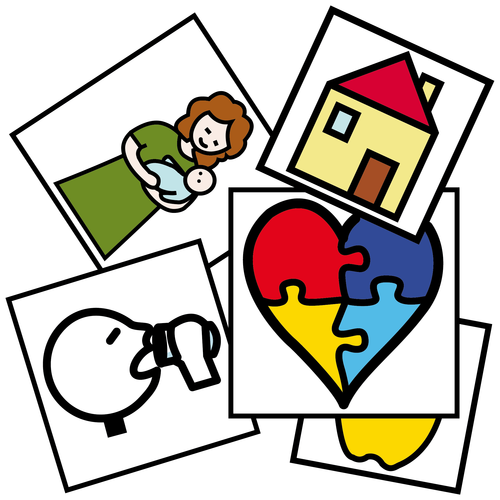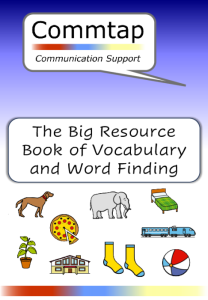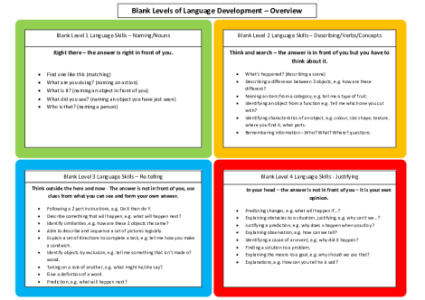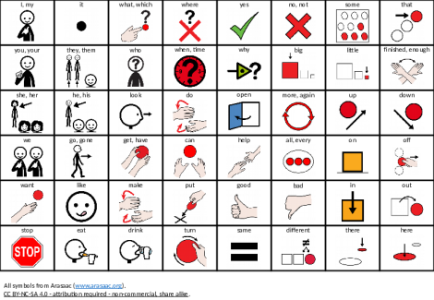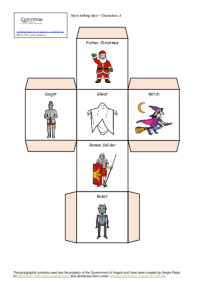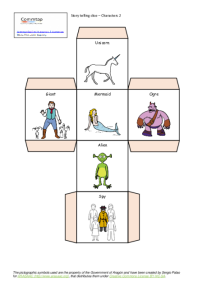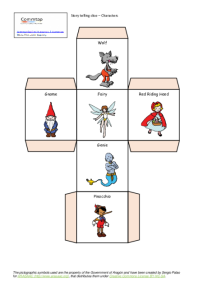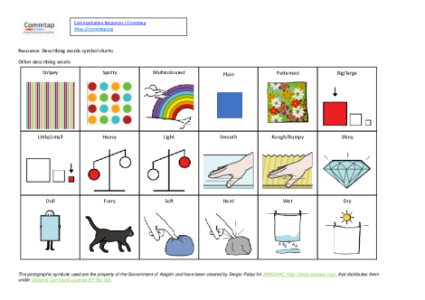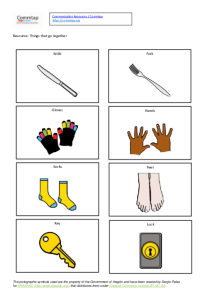Search
User login
Topic “Vocabulary/word finding”
Vocabulary Resource Pack: Video Instructions
This video shows you how to use the vocabulary resource pack.
Sections
Links open in YouTube.
Vocabulary Resource Pack: Video Instructions
Created 2 March 2025; updated 7 March 2025.
Core communication board
Core communication board using ARASAAC symbols (https://arasaac.org). For use with everyday communication.
Note: if re-distributing with the ARASAAC symbols, this must be done non-commercially only.
You can make your own core communication board using different symbols with the Commtap Symboliser for PowerPoint.
Created 25 June 2022; updated 6 December 2024.
To be able to describe objects using a variety of adjectives/descriptive words
| Activity/strategy name and materials required | How to do the activity | Key principles for doing the activity and comments |
|---|---|---|
| What's in the bag? - adjective symbol boards - click here to print - a variety of objects or pictures - click below for a selection of pictures: - a bag |
| Make sure your child/student has an understanding of the basic concepts, e.g. heavy/light, hard/soft before playing this game.
To make this activity easier, you could give your child/student a selection of pictures they can look at while you are giving clues to see if they can find the one you are describing. |
| Label a picture - A selection of photographs or pictures of objects - you could cut them out from a newspaper, magazine or catalogue. - Paper - Glue |
To be able to find objects that go together
| Activity/strategy name and materials required | How to do the activity | Key principles for doing the activity and comments |
|---|---|---|
| Matching game |
|
Support Commtap to keep it online
Thank you for visiting Commtap.
Please read this message as it is extremely important.
- Visitor donations mean we can continue to host over 1,000 free activities to support speech, language, and communication development.
- Visitor donations mean we can continue to provide free resources to address a wide range of communication needs, including limited speech or language, interaction challenges, and needs associated with conditions such as developmental language disorder, autism, and cerebral palsy.
- Visitor donations mean we can continue to provide resources to support the work of speech and language therapists, teachers, teaching assistants, parents, and carers.
- Visitor donations mean we can continue to provide the free key word sign dictionary (bks.org.uk) which has over 2,000 Makaton and Signalong signs.
We know that not everyone is able to afford to pay to access these resources, however, if you can, please make a donation to keep the site going.
Thank you
Google ads on this page are provided by Google Adsense - and their presence does not imply any endorsement by Commtap. Report a problem with an ad on this page. Log in (for free) to avoid seeing Google ads.
